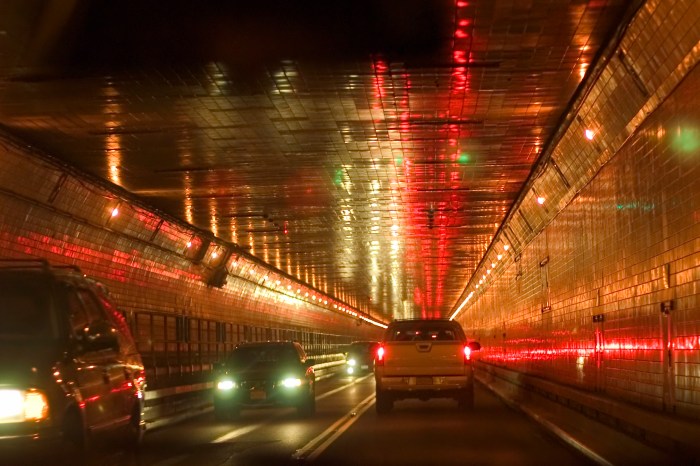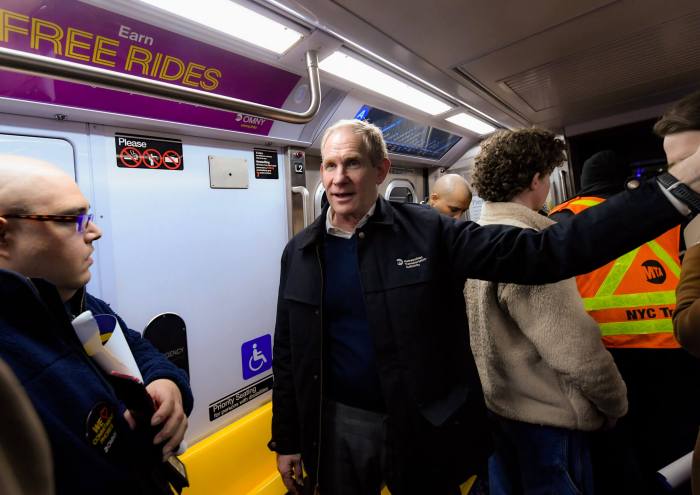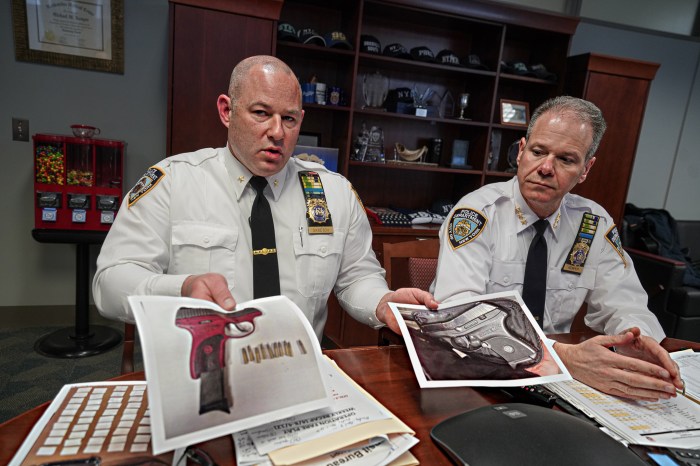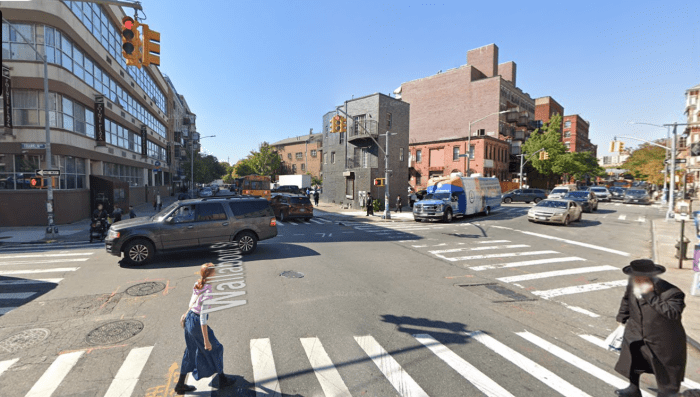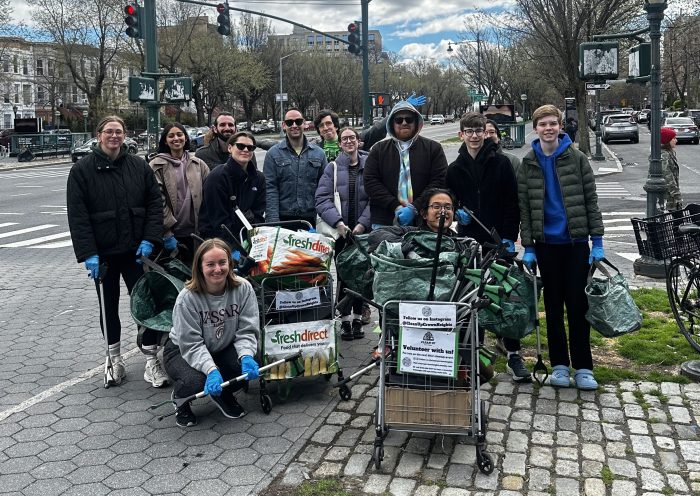
Senate Minority Leader Chuck Schumer on Sunday derided the safety culture of the regional commuter rails and called for federal officials to conduct a “comprehensive safety review” of agencies’ initiatives to increase safety on the tracks.
The remarks came four days after a Long Island Railroad train slammed into its bumping block in Atlantic Terminal, derailing the first two cars and injuring 103 people. Schumer said that sleep apnea was “very likely” involved in the collision and that the MTA should be doing more to test drivers for the disorder.
That crash “made it obvious the safety of our commuter railroads is off track, plain and simple,” said Schumer at a news conference in Penn Station. “We’re here today because the recent derailment only increases the urgency to implement some real change. Time after time what has been happening is this: A derailment occurs and then one individual train system promises, ‘Oh, we’ll make it better.’”
Schumer was describing what he considered to be a piecemeal approach to addressing sleep apnea, which he referred to as a critical safety issue. After four people were killed in the 2013 Metro-North derailment near the Spuyten Duyvil station, the train engineer was diagnosed with sleep apnea. The engineer involved in the New Jersey Transit derailment in Hoboken last fall was as well. The National Transportation Safety Board (NTSB) is still investigating the LIRR crash earlier this week and it is not yet officially known if sleep apnea played a role.
Since the Bronx Metro-North derailment, the MTA has begun testing those train engineers for the disorder. In April, the agency announced that it would expand the screenings throughout the system.
“But why haven’t all our railroads been doing this? That’s the question,” Schumer said. “It’s not safe and it can’t continue.”
Aaron Donovan, an MTA spokesman, said in an email that the MTA expects to award a sleep apnea screening contract or contracts in the coming months to expand systemwide. No LIRR employees have been screened yet, he said.
The process of sleep apnea testing, which is not required by law, is complicated, according to Donovan. It involves several tests for each employee as well as overnight monitoring.
“Safety is the top priority for MTA and all its agencies,” Donovan said. “The MTA’s commuter rail system is the first in the nation to begin testing for sleep apnea on Metro-North and we are currently in the process of expanding it to all of the MTA agencies.”
Schumer has sent a letter Christopher Hart, the chairman of the NTSB, asking for the federal agency to conduct a national review of commuter rail safety efforts, like the implementation of sleep apnea testing as well as the installation of inward-facing cameras, and publish the findings for scrutiny from Congress and the public. The letter was co-signed by four of his colleagues in the Senate—Kirsten Gillibrand, Bob Menendez, Corey Booker and Richard Blumenthal.
Sleep apnea impacts more than 18 million Americans, according to the National Sleep Foundation. Noting the recent diagnoses among engineers, Schumer said he had also asked the NTSB to explore whether the issue is systemic within the industry.
“We’ve asked the NTSB to look into just that,” Schumer said. “Why does sleep apnea seem to be so prevalent and is it a condition in everybody, or is this because \[engineers\] don’t have enough rest?”
The NTSB did not immediately respond to requests for comment.










